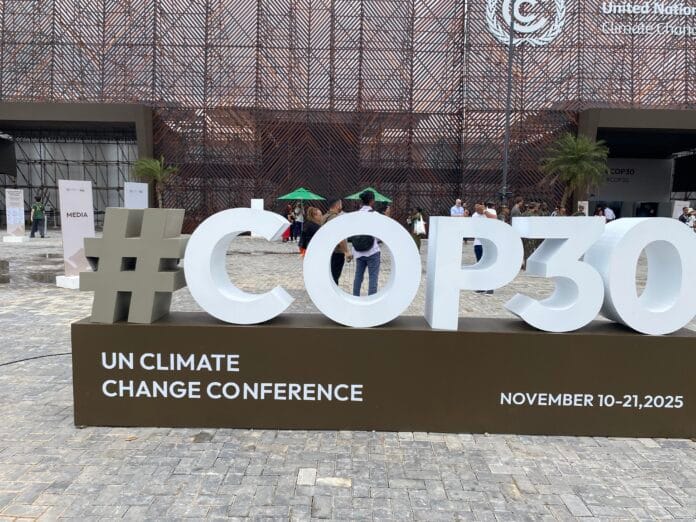A growing coalition of countries — including Denmark, the United Kingdom, Kenya, France and Germany — voiced support for Brazilian President Luiz Inácio Lula da Silva’s call to develop a global plan to transition away from fossil fuels.
Subnational leaders from the Under 2 Coalition, representing South Korea, Mexico, the UK and South Africa today issued a joint statement urging national governments to begin drafting a fossil-fuel phase-out roadmap. Colombia added its weight by publishing a declaration backing a transition away from oil, gas and coal.
Major Boost for Climate-Health Preparedness
The Climate and Health Funders Coalition announced a US$300 million commitment aimed at strengthening public-health systems facing mounting climate-driven risks. The funding is expected to help countries respond to rising health threats, from heat-related illness to the spread of vector-borne diseases.
Global Carbon Emissions Set to Break Records
The new edition of the Global Carbon Budget report projects a 1.1% rise in fossil-fuel emissions in 2025 — pushing global emissions to an all-time high. The findings underscore the widening gap between current government targets and what scientists say is needed to keep global heating within safer limits.
Forests Receive Protection as Nature Talks Stall
Colombia announced that 42% of its territory — covering its share of the Amazon — will be off-limits to fossil-fuel exploration and extraction. Colombia and Switzerland also backed President Lula’s proposal for a “Forest Roadmap.”
Meanwhile, tensions surfaced elsewhere: Saudi Arabia blocked the first formal discussions intended to integrate global strategies on climate, nature and desertification, despite holding the presidency of the UN desertification conference.
World Still on Track for 2.6°C Warming
Fresh analysis from Climate Action Tracker shows that current national climate pledges (NDCs) would lead to approximately 2.6°C of global warming — unchanged from last year’s projection. Climate-vulnerable nations warn that COP30 must deliver stronger commitments from major emitters to preserve any chance of limiting warming to 1.5°C, a threshold they fought hard to enshrine.

